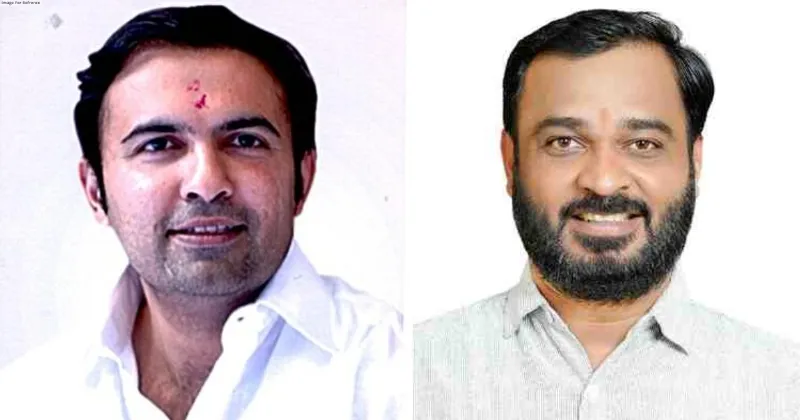Latest News
SHOULD WE WORRY ABOUT THE AFTERLIFE?

I have noticed a rise in the number of people who say they take it for granted that there is no afterlife. As heavens and hells fade from secular society, the scientific worldview offers no decisive proof about what happens when the physical body dies. That should make the afterlife an open question, like speculating about whether a plant orbiting around a distant star might have life on it. But somehow the absence of proof has made countless people decide that death is final.
As sticky and complicated as this issue is, it can be broken down into three perspectives that in themselves are simple. The perspective of a devout believer supports life after death; the skeptical perspective denies it; the undecideds stand in the middle. The fundamental issue is whether the afterlife can be transformed into a viable question.
I believe it can, once we return to basics, including the most boring basic, which is to clearly define our terms. That sounds boring, but as it turns out, defining our terms answers the question.
The most basic term in this case is consciousness, because when arguing over the possibility of an afterlife, much confusion is caused by asking the wrong questions. If you don’t specify what consciousness is, you wind up worrying about the survival of the soul, or of “me,” the individual ego-personality. And if those pitfalls are avoided, Eastern traditions are filled with equally misleading notions of Jiva, Atman, and Brahman, or of Nirvana and Satori.
If two people agree on their definition of consciousness, they will agree on the existence or nonexistence of an afterlife. For a skeptic whose core belief is that all things can be explained through materialism (data, experiments, measurements, etc.), there is no doubt that the afterlife is spurious—not because it actually is, but because a skeptic’s worldview forbids it to exist. By the same token, a devout believer holds fast to a worldview where the non-existence of a personal God is impermissible, even unthinkable, and therefore the afterlife acquires its reality by association with the deity.
Seeing this rigidity on both sides, is there a definition of consciousness completely detached from all belief systems, which means the absence of bias, predisposition, received wisdom, rumor, myth, group pressure, wishful thinking, fear, and mental figments of every sort? I believe so.
Every reasonable person, I think, will accept that consciousness, as experienced by humans, is the awareness of two things: that we exist and that we experience. By extension, a reality that cannot be experienced is moot. By this measure, UFOs, angels, the afterlife, and the quantum vacuum exist on the same playing field. They are suppositions and inferences.
If we toss out suppositions and inferences, what can we truthfully say about consciousness? By this I mean what can we say that no reasonable person will disagree with? Here we run into a complicated situation because certain aspects of consciousness require extended discussion and a back-and-forth between people of good will. Such a setup is rare, unfortunately, but at least I can relate a few things that I’ve been able to convince people of over the years.
1 There is only one consciousness. To subdivide it makes no sense. This point is lifted almost verbatim from Erwin Schrödinger, the eminent quantum pioneer. Philosophically, the “one consciousness” position is common to monistic schools, because they repudiate any true difference, ontologically, between the one and the many. Yet when dealing with everyday people, it’s obvious that we all cling fervently to being individuals, outfitted with “my” family, house, body, mind, and soul. To crack this allegiance requires arguments like the following:
- When you get wet, do you call it “my” wet? Some things happen to us personally but turn out to have a general existence.
- If you sing “The StarSpangled Banner” as you walk down the street, did the song walk down the street with you?
- If you imagine your mother’s face, where is that mental image located? The brain has no pictures in it, and no light. When you imagine your mother’s face, you don’t consult a directory of facial characteristics the way computer recognition software does--you simply call up what you wish to see.
- Where is your self located? There is no neurological evidence of a region of the brain that contains the self, and even if researchers claimed such a region existed, it would have to contain everything attached to you as a self, including your life history.
2 Assuming that the discussion can crack open the presumption of isolated, local consciousness--there are many ways to get at this, not just the few questions listed above--the second point is that this “one consciousness” cannot be located. It is everywhere, all at once. This point sounds like a hard sell, as it would be if everyone held an advanced degree in philosophy, I imagine. But in everyday life, the argument is fairly easily based on physics.
- Cosmologists and quantum physicists agree that spacetime originated in a domain (referred to as the zero point, quantum vacuum state, or the realm of pure mathematics) that isn’t in time and space.
- The entire universe, as well as individual subatomic particles, emerged from this precreated state, which has no qualities we would recognize such as linear time, dimensionality, solidity, energy, etc.
- At the very least, all creation stories, scientific or not, converge on creation of something out of nothing. Beyond our experience of reality in spacetime, there is a field of infinite potential and unbounded possibilities.
- As reality of space, time, matter, and energy appeared and continues to appear, existence of consciousness must be accounted for. There are only 2 viable possibilities that are taken seriously.
THE VIEWS EXPRESSED BY THE AUTHOR ARE PERSONAL
DEEPAK CHOPRA The writer is MD, FACP, FRCP founder of the Chopra Foundation, a non-profit entity for research on well-being and humanitarianism, and Chopra Global





















